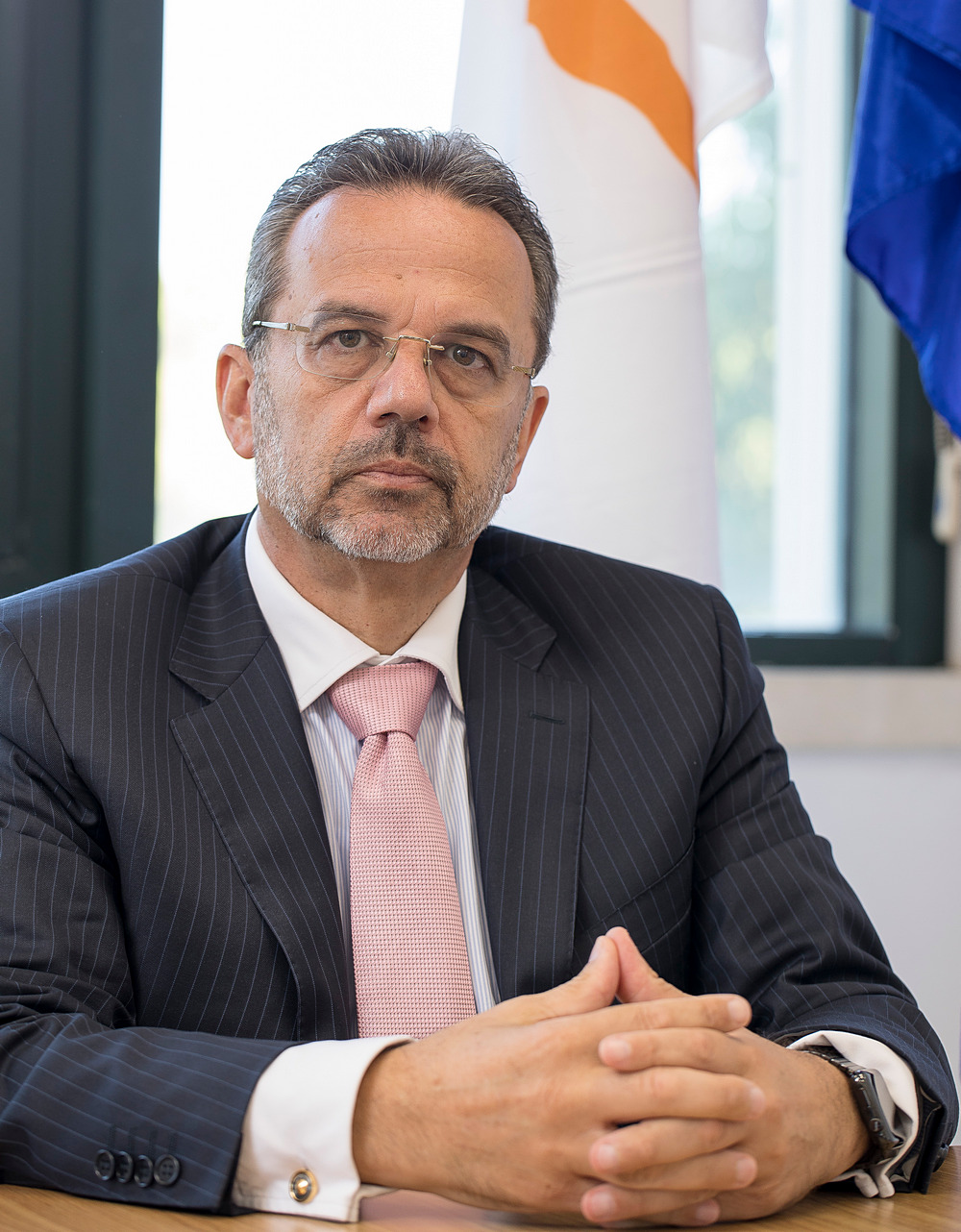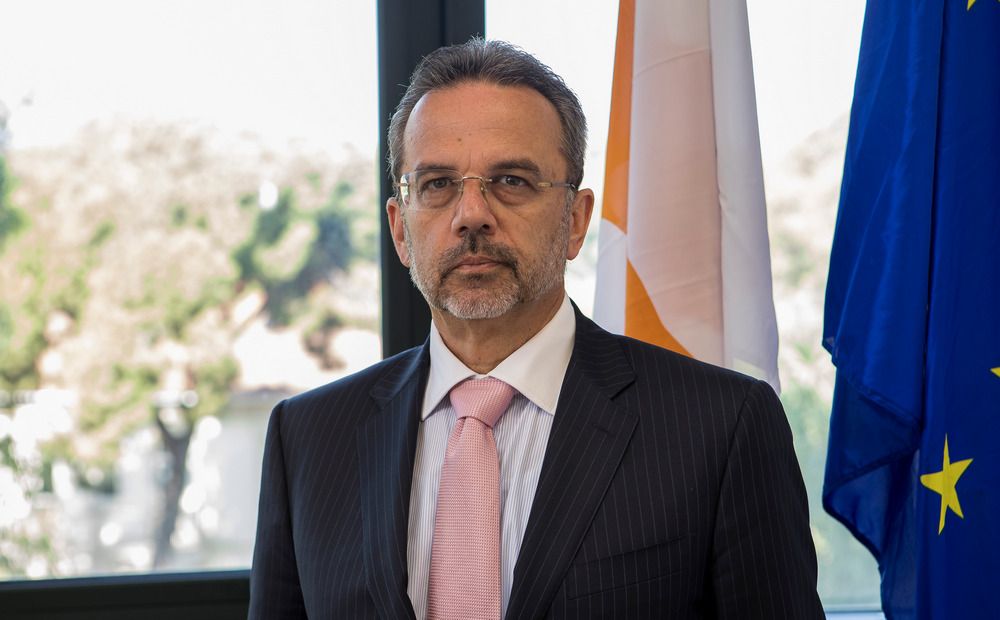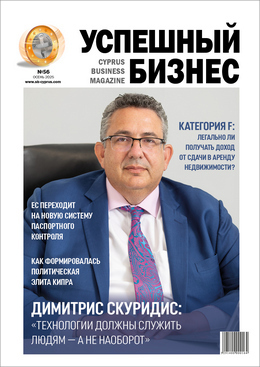The new bill on Blockchain technology, two solutions for e-justice, management of governmental microservices, introduction of digital culture, and many other new and important subjects were discussed during the interview with Kyriakos Kokkinos, Deputy Minister to the President of Cyprus for Research, Innovation & Digital Policy.
My first question would be about the year 2020 – the first year for the Deputy Ministry. I would like you to present an outlook, an overview of the most important achievements the ministry had during this time.
As you know, the Ministry started operating on the 1 March 2020, at the same time the pandemic crisis hit, so it was a very rough and a very unusual start of our operation. Nevertheless, I think the Ministry was created at the right time in a sense, and that it helped a lot in coping with the pandemic-related challenges on the technology side. For example, within one week of the pandemic lockdown, we had created a platform for the processing of medical records for Covid-19-related inquiries. Within 3 weeks we had developed a platform for the social welfare department, for the payment of Covidrelated allowances. We managed to create a unique platform for the SMS lockdown authorisations that helped monitor how many times each eligible citizen was entitled to move. I truly believe that we made a major contribution as a new Ministry in our 9 months of operation. We kicked off a study on Artificial Intelligence (AI) which is under implementation as we speak. The blockchain Bill will be concluded and submitted to Parliament for approval making Cyprus a blockchainfriendly jurisdiction. We finalised our National Digital Strategy which has been carried out by PwC.
Could you please elaborate on your plans regarding blockchain technology?
There are two pillars on our blockchain strategy that were approved by the ministerial council: legal framework and technical framework. In terms of the legal framework, we have commissioned a team of experts including a law professor specialised in blockchain, who are working on a bill, – in collaboration with our local law firms – that will be submitted to Parliament for approval. On the technical part, we have been working with the European Blockchain Partnership and we announced an invitation for expression of interest for local firms, to propose cases that will solve the technical difficulties faced by our citizens. For example, KYC (Know Your Client) issues or cases on the domain of certifications of academic qualifications and certification of agricultural products, to name a few. We received around 56-59 proposals, all of which were evaluated. Now we are in the process of selecting which will be piloted by the government in collaboration with the private sector.
Could you tell us more about the projects that started in 2020 and are expected to be completed soon?
One example is e-justice, which is amazing in my opinion to have only electronic communication between lawyers and courts. After 4 months of hard work, in December, we introduced an interim solution for the e-justice system. It means that collaboration and communication between law firms and lawyers on the one hand, and the justice system on the other hand will be conducted electronically. This system has been tested and is currently under implementation and we expect to go live in February. The pandemic forced our society, our system to adopt a digital type of communication and use digital technologies. It is unfortunate to say “pandemic is a blessing” but in this context, it was. As I said, e-justice is very important for our economy, it is an interim solution which will last for about 2 years. In the meantime, in September we conducted another big project of e-justice which will be all-inclusive. It will be operational in 14 months from today. This project is a major reform. Moreover, the Tax Department has been contracting a new project for its digital transformation, which includes all types of taxes: social security, income tax, VAT, customs, etc. The contract value for this project is €34 mln and it will require approximately 2 years to implement. A school management system has kicked off this year as well. We have €350 mln of projects which are under implementation at various stages. Since some of these projects will take 12-18 months, some of them over 2 years, we have initiated a digital services factory. There are around 160 government microservices that can be provided to citizens in a fast-track approach, in a few months’ time. Basically, there are two speed approaches: the major projects and a list of small government micro-services. Although we call them “micro”, they have a major impact on the quality of life of our citizens and our businesses.
Could you name more services that will be accessed fully electronically in the nearest 3-5 months?
Town planning, submitting applications for building permits, student registration, electronic property deeds issued by the Department of Land and Surveys.
What challenges does Cyprus have when designing and implementing digital strategies? You said once that the main challenge is changing the culture… What else do you observe?
Culture is certainly the most difficult thing to cope with. In any digital transformation, you need to deal with systems that need to be reconsidered. For example, every government, ministry, department has their systems installed. We don’t need to have so many separate small infrastructures. Keeping up with technologies like that is very hard. We need to have one single data center for all. Dealing with government processes can be another challenge. Sometimes you need to change the laws in order to implement a digital reform. You need to cope with systems, processes, structure, and culture in the context of fast execution, which is very difficult.
I would also like to talk about the future. What measures do you introduce for Cyprus' IT community? There is a call for companies to provide communication services via a digital solidarity platform. There is as well the Horizon 2020 plan. What do you do to motivate Cypriot companies to participate actively in this area?
You are touching a very important strategic aspect of the Ministry’s efforts. Our national competitiveness as an economy, as a society, our sustainability and social prosperity, strongly depend on our capacity to develop and advance our posture as an international regional hub for science companies as well as high-tech companies. This is extremely important because attracting technology companies and international talent to use Cyprus as their home base, as well as leveraging and enhancing the local talent pool, is one of the top priorities on our growth agenda. It is an essential component of our economic model, and as such, requires engagement and orchestration of different stakeholders of the government, industry, and academia to make Cyprus a branded, inter nationally recognised business-friendly jurisdiction for high-tech and science companies. Two months ago, we started a draft of the strategic plan for Cyprus that will lead to the advancement of new pillars of our economy, contribute to its sustainability and resilience, and position Cyprus at the heart of knowledgebased economies. This strategic and disruptive shift will be supported by very specific interventions, policies and the instruments of our regulatory, taxation, immigration policies, talent management, and governance.
Could you give more detail on taxation and immigration policies? It is important for foreign communities that bring their knowledge and investments here to help Cyprus have its place on the map of innovations and technologies.
Let me give you some examples. We need to introduce some interventions in the institutional environment to address the regulatory playfield, government taxation, both individual and corporate, immigration policies and procedures. For example, one of the things we are currently examining is modification for income below €100,000 for nonresidents. Another thing to consider is tax incentives for innovative companies, introducing a "tech-visa" for high-tech and IT professionals, subsidies for employment costs for companies establishing IT centres in Cyprus. This refers to the institutional environment but we need to update and upgrade obsolete procedures and legislation as well. For example, obtaining the work permit for spouses of work permit holders; bringing together entrepreneurs, researchers, and academia in the industry. Human capital is very important because the talent pool availability is a challenge not just for Cyprus but for many countries. Upskilling programmes for young professionals and recent graduates should be implemented. Our education system needs to be revisited. We invite expats that are working in Cyprus to help us find and align their knowledge needs with our academic curricula so our graduates can also contribute and help. The other aspect is R&D and innovation capacities.
Are there programmes to support startups? The Cyprus Startup Visa was introduced several years ago. However, this programme is believed to not be working to its full potential.
The Startup Visa didn’t work well not because the programme was badly structured, but because of poor promotion. We had to advertise it more aggressively. There is another programme where we give €100,000 to new startups registered in Cyprus and we have already provided financing to 40 such startups. It is a competitive process and it goes through cycles twice a year. There is as well the Pre-Seed programme that grants €500,000 to existing startups aiming to advance towards commercialisation of their project, and €1 mln to mainstream companies wishing to invest, with a convincing proposal for innovative products-services. This Innovate programme was launched in November 2018 and has been successfully implemented since then.
 Kyriacos Kokkinos has been Deputy Minister to the President for Research, Innovation and Digital Policy, since 1 March 2020.
Kyriacos Kokkinos has been Deputy Minister to the President for Research, Innovation and Digital Policy, since 1 March 2020.
He previously served as the Chief Scientist for Research & Innovation of the Republic of Cyprus, Chairman of the Board of Directors of the Research & Innovation Foundation, and Member of the National Board of Research & Innovation.
He is a distinguished professional with 30 years of experience in Executive Management, Technology and Business Consulting. He held senior Executive positions in global corporations such as IBM Europe (Executive Director & Partner) and PwC.
He also served on the Board of Directors of many organisations, including Invest Cyprus (Cyprus Investment Promotion Agency - CIPA), the Cyprus Tourism Organisation (CTO), the Cyprus Port Authority (CPA), and the Board of Trustees of the Cyprus Institute.
Mr Kokkinos’ academic qualifications include Executive MBA in Strategic Management from Henley Management College (UK) and MSc & BSc in Electrical Engineering from New Jersey Institute of Technology (USA). Kyriacos Kokkinos is married and has two children.







